Background:
Learning what temperature the air leaving the turbocharger is at has been something I’ve been interested in on account of the demands this places on the intercooler.
034 Motorsport sells a turbo muffler delete with two ports that provide easy access for sensors to sample the air conditions at the compressor housing outlet.
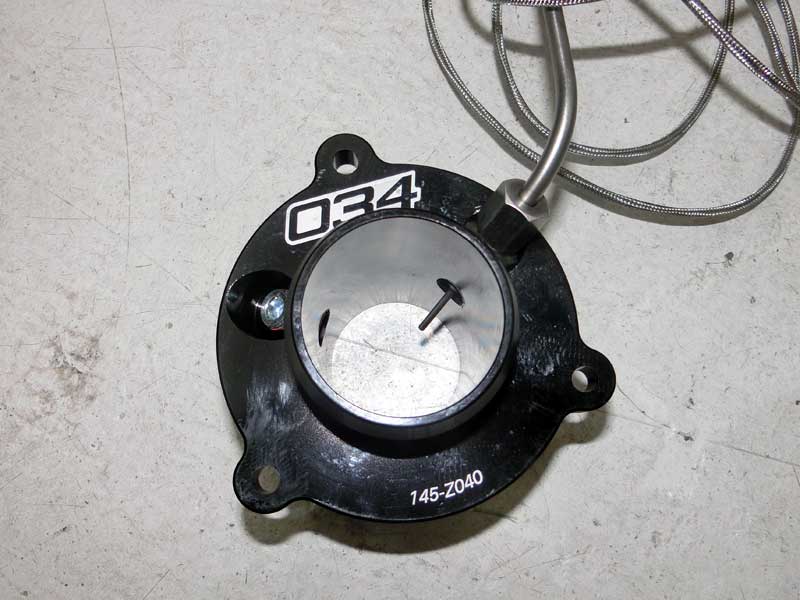
I have installed a temperature sensor and pressure sensor in the TMD.
Recently I’ve been switching between a couple of tunes that operate at different boost pressures which have supplied me with data points to compare the compressor outlet air temperature with change in boost.
Data Comparison:
Shown below are two representative samples of the boost curve each tune operates at.
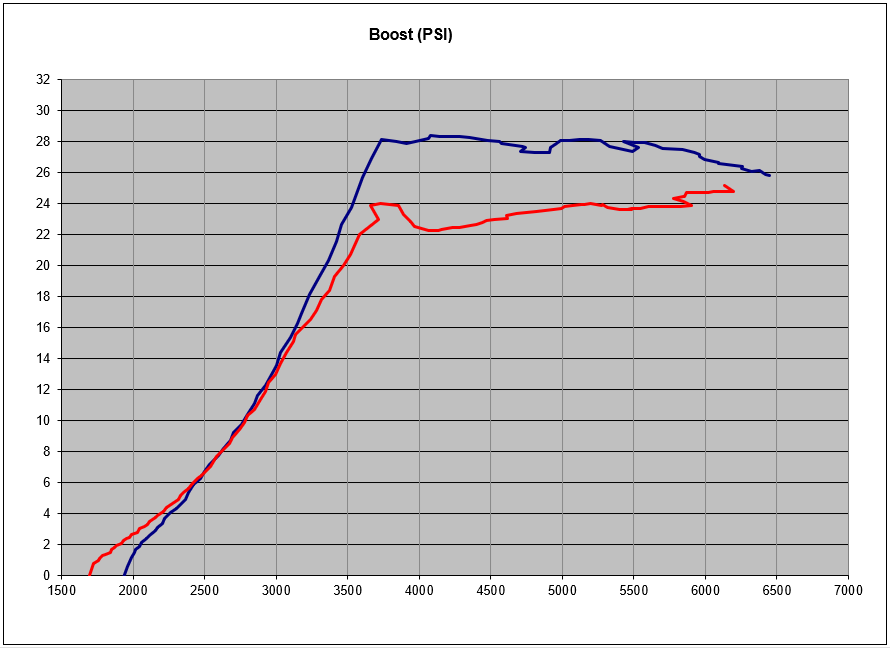
The next chart is an example of how the turbocharger outlet air temperature varies when going from approximately steady-state driving to full throttle and then letting off the accelerator.
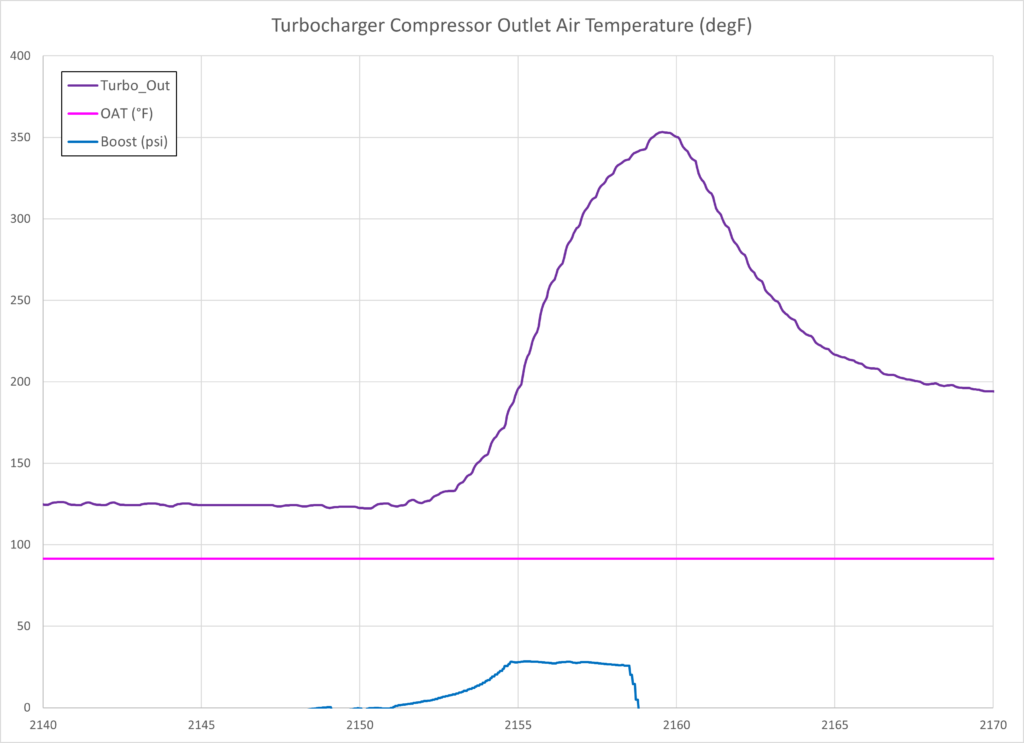
To simplify making a comparison the compressor outlet air temperature at the moment boost drops is recorded.
Over a series of successive pulls, the compressor outlet air temperature increases slowly, as shown in the next chart.
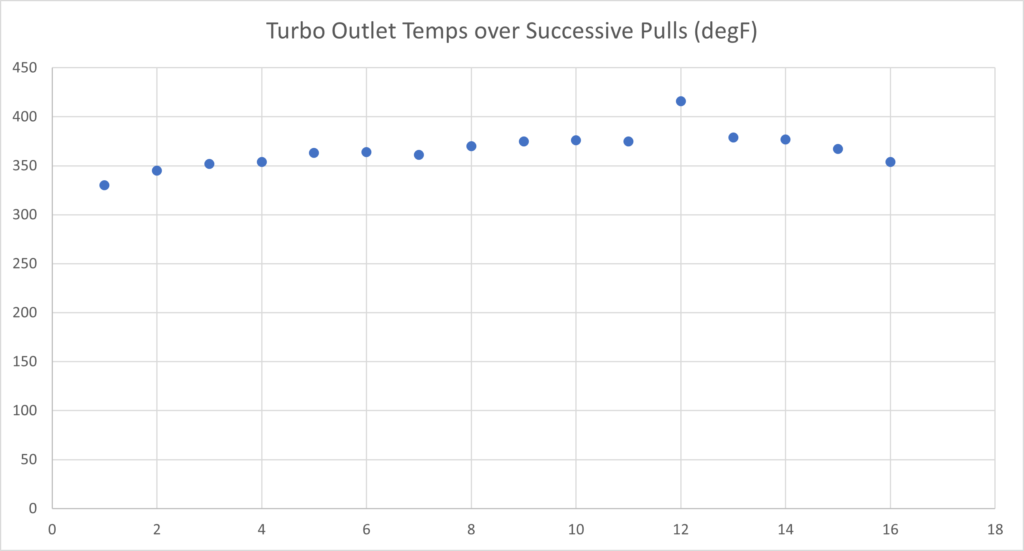
Several samples of outlet air temperature from each boost pressure were collected to create the box plots shown next.
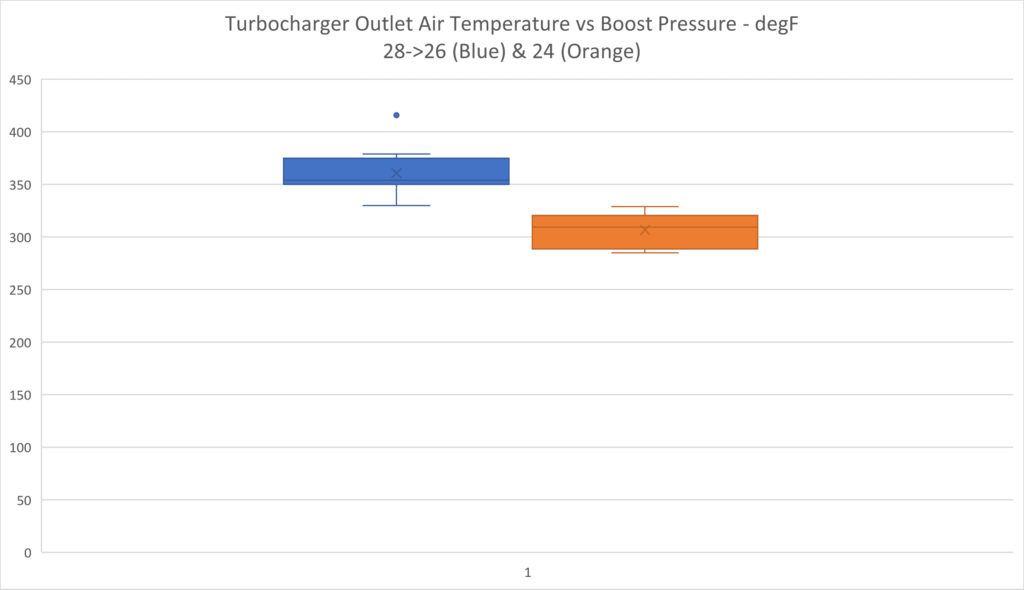
Not surprisingly, the higher boost pressure correlates with a higher air temperature leaving the turbocharger compressor.
In this case, the mean temperature difference is slightly more than 50 degrees Fahrenheit.
Quality Check:
A check of the data recorded indicates the mean difference of the samples is statistically significant at a 5% significance level (maximum risk of making a false positive conclusion).
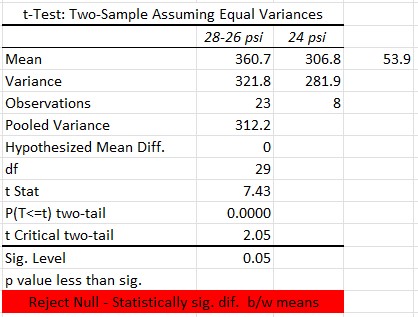
The difference between the mean values is fairly large and the standard deviations are reasonable for the values of the means, ~17. The effect size is therefore large (~3), which means the number of samples required to detect the difference will be small.
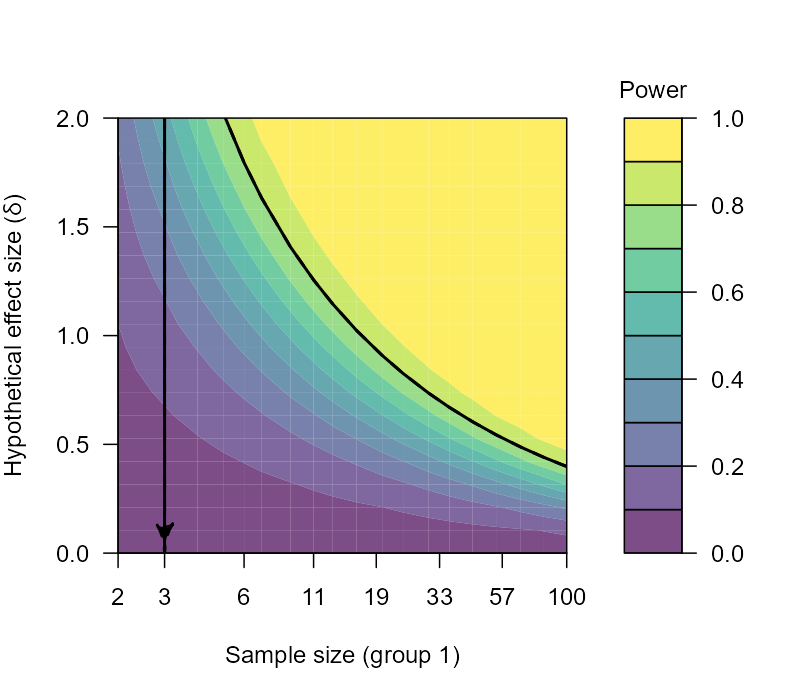
Using common values for the level of significance (5%) and statistical power (0.8) the minimum sample size is 3, which was exceeded in this comparison.
Conclusions:
Peak turbocharger compressor outlet air temperature at full throttle was compared using the same GTI when switching between ECU tunes that produce different levels of boost pressure.
A roughly 4 psi difference in boost pressure from 24 to 28 psi correlated with a temperature difference slightly greater than 50 degrees Fahrenheit.

I’d be curious to see what kind of differences there are in outlet (and intercooler) temps on an IS20 vs IS38 with an identical boost curve (say 25 peak tapered to 17) to see what kind of temp differences each would have in relation to power differences.
Temperature differences at the same pressure are probably very small. I don’t think the compressor efficiency differs enough to produce a difference that would stand out without careful measurement.